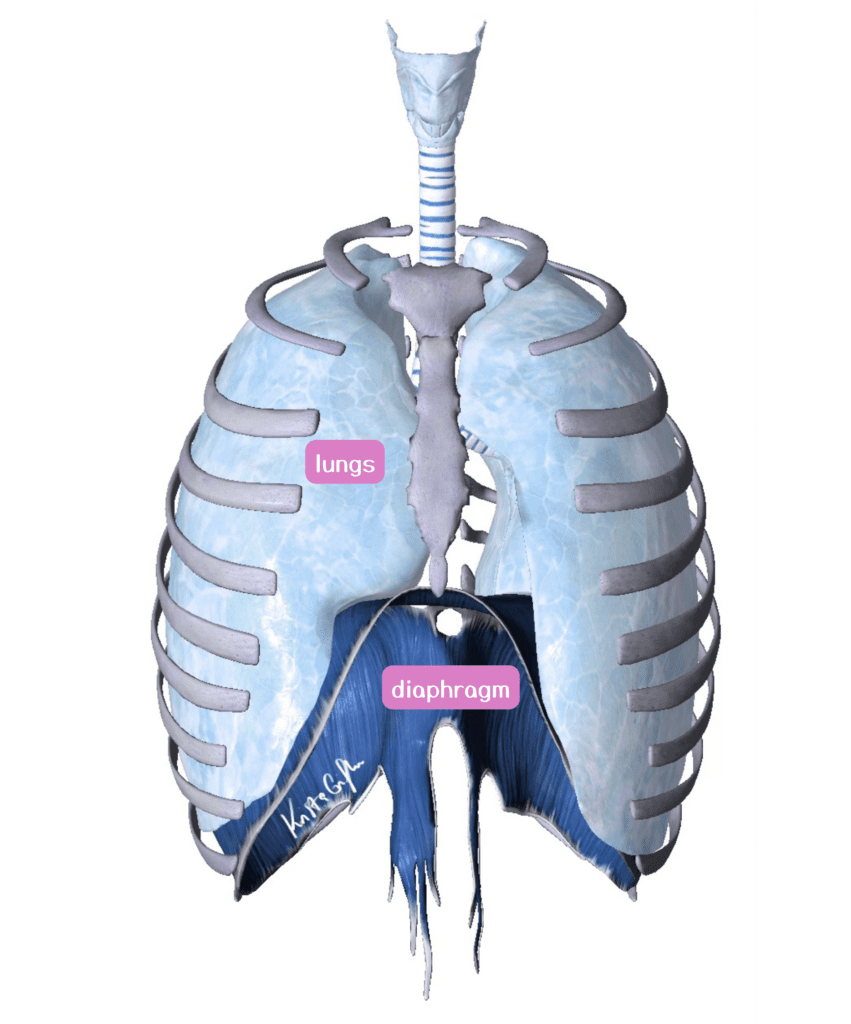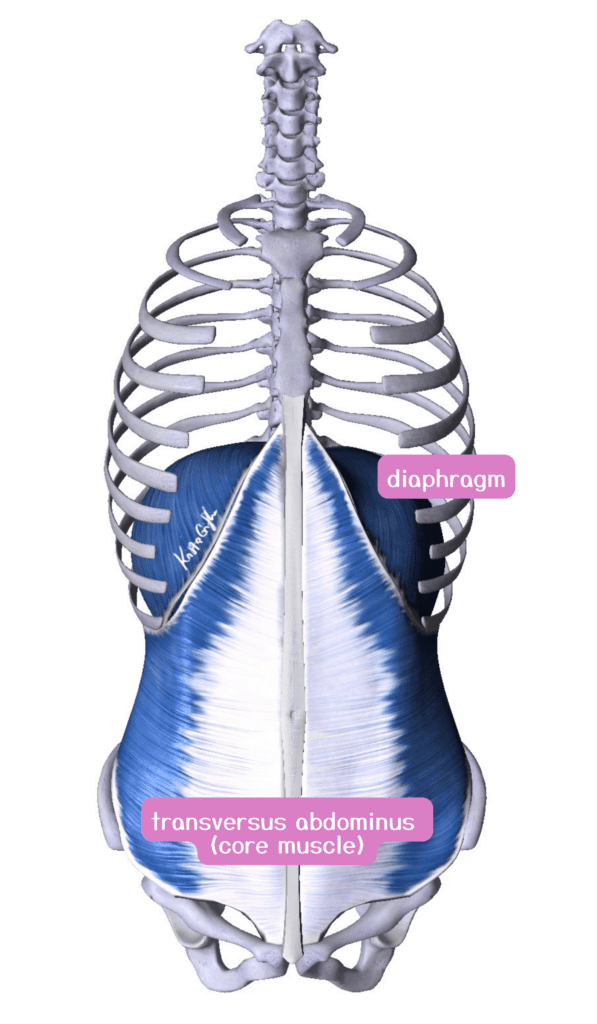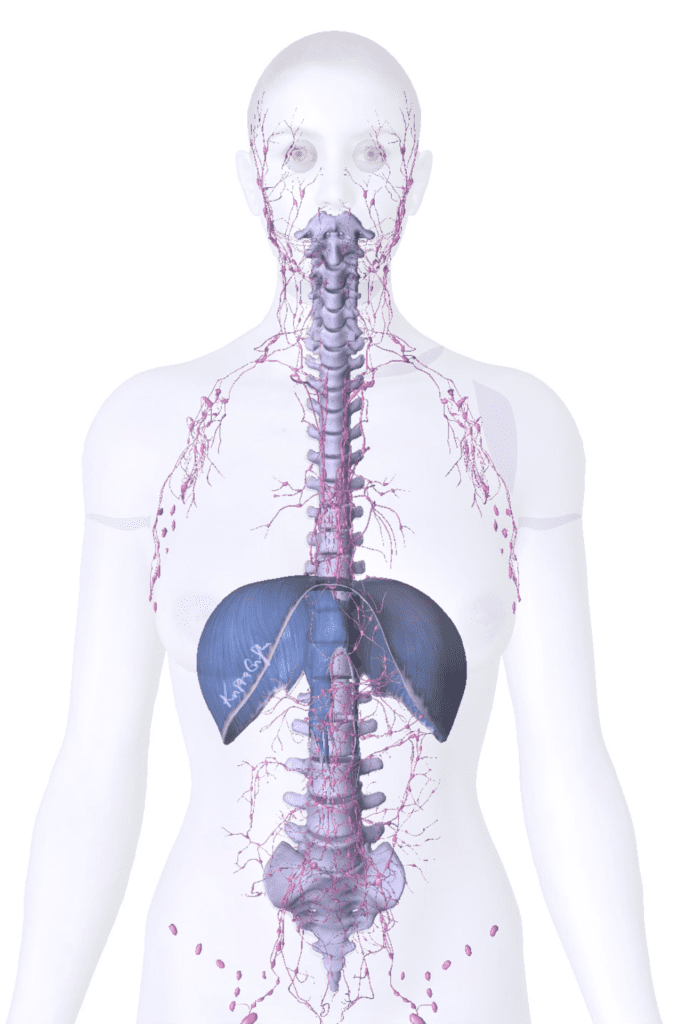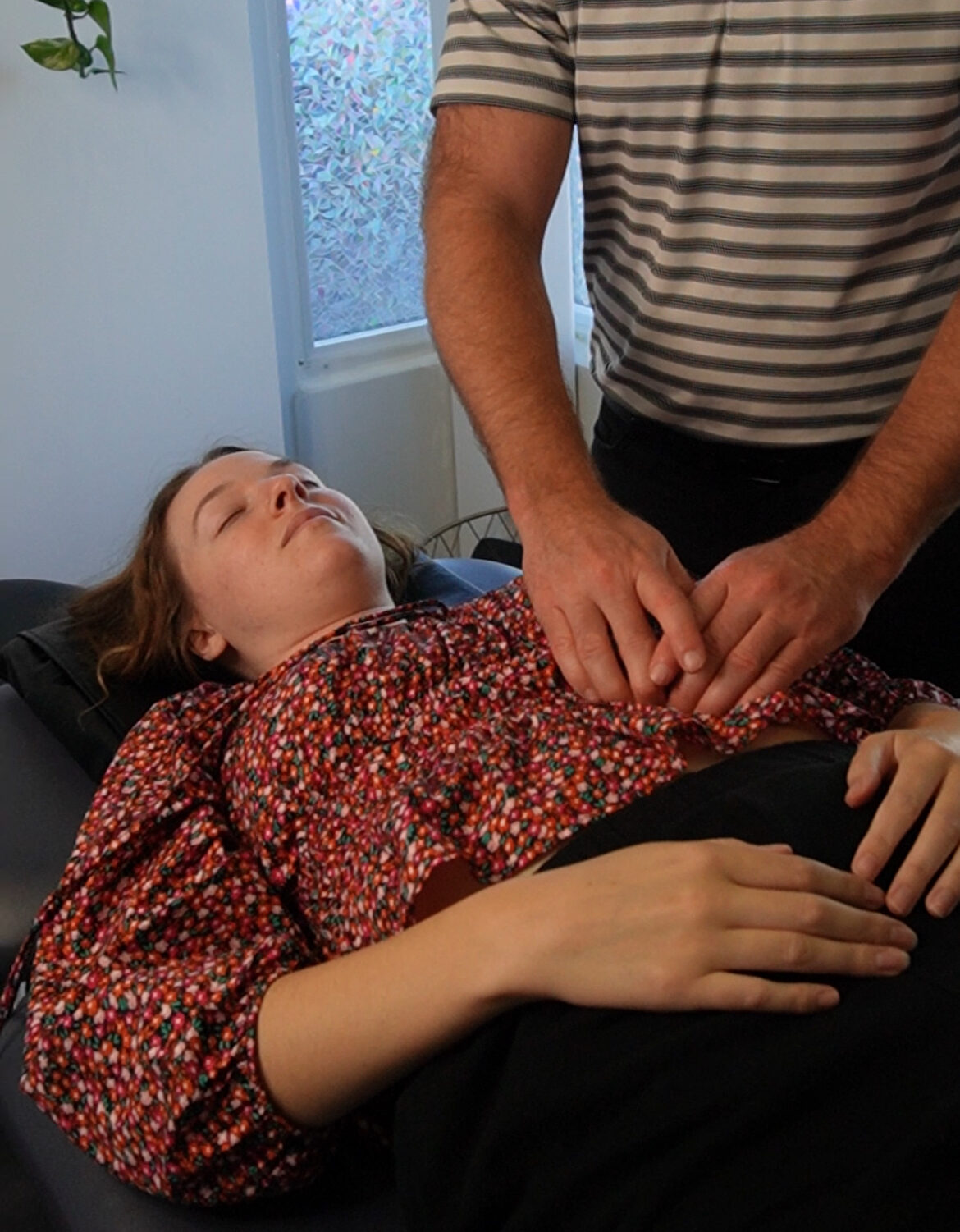the blog
learn with us
How Breathing Can Enhance Your Health
How Breathing Can Enhance Your Health
Why you need to breathe better
Proper breathing with your diaphragm, through your nose, is a foundational pillar of your health. It is something we work on with all our patients because it is a central factor to many symptoms we see.
What we focus on with you is the anatomy and biomechanics of how you are breathing. This is different than breathwork – which is typically a pattern of inhaling and exhaling for a certain number of seconds. Such as the Wim Hoff method – which we are huge advocates of! But that isn’t what we teach you. Because if you are trying to do breathwork methods without the anatomical foundation you need, it will be very difficult and not as effective.
No more holding your breath!
Believe it or not, most of us don’t breathe properly due to the modern stresses we are facing. And this has a huge impact on your health. I bet as you’re reading this right now, you are holding your breath without knowing it. Email apnea is an actually condition where we hold our breath when we write and read emails. I’m sure this can also be said about our phones. Our days are consumed with reading and responding to email, using social media and texting. Think of all the precious oxygen our brains, organs, muscles and cells aren’t getting throughout the day.
Anatomy & Biomechanics of Your Breath

As you breathe in, your body should expand as your lungs fill with air. Your diaphragm descends, your ribs should expand laterally (sideways), and your abdomen are should expand as well.
As you breathe out, your diaphragm raises up as your lungs empty. And your ribs and abdomen will recoil back in as well.
If you breathe in through your nose, rather than your mouth. You will notice it’s much easier to breathe with your diaphragm and expand as you inhale.
Nose breathing vs Mouth Breathing
Did you know you are supposed to breathe in through your nose? Not your mouth!
Breathing in through your mouth is linked to asthma, headaches, anxiety, high blood pressure, chronic respiratory and sinus infections, snoring, and sleep apnea.
Mouth breathing can also decrease the volume of your nasal cavities. But fortunately, with some practice and proper breath retraining, we can increase the volume of our nasal passage back to a normal diameter.
When you breathe through your nose, nitric oxide is produced which causes a vasodilation of blood vessels. This allows your lungs to get more oxygen, and brings more O2 to all your tissues. Even though it feels like we can get more air into our lungs with mouth breaths, we actually absorb 20% more oxygen with nose breaths.
Core Control & Muscle Compensations
One of the things we usually teach on your first visit is how to activate your core and breathe at the same time. When our bodies are challenged, we tend to hold our breath. This means you may be using your diaphragm to help give you strength, rather than using other core muscles like your transverse abdominus. Your diaphragm is meant to be used for breathing, not muscular strength when lifting a heavy object for example. Something we see very commonly is people tend to hold their breath, using their diaphragm for stabilization to compensate for their other core muscles. It is important that you can generate stability with your core muscles without holding your breath. This allows your diaphragm to descend properly and bring in the adequate oxygen into our lungs. As we know, oxygen is vital to cell health and function.

Why breathing is important for overall health

Proper breath increases circulation of your arterial/venous blood and lymph fluid. Your diaphragm is the primary thing that moves lymph fluid. As the diaphragm descends, there is a relative change in pressure between your thorax and abdomen that helps pump fluid. Your largest lymph node, the cisternae chyli, lies right below your diaphragm. This is no coincidence. It allows lymph to move more easily from your abdomen up to your neck, where it empties into your venous system to be filtered and excreted.
Without proper diaphragmatic breathing, your lymphatic system can become sluggish and stagnant. This affects your immunity, digestive system, and can cause many unwanted symptoms (brain fog, headaches, chronic sinus congestion, autoimmune diseases, acne, eczema, body aches, back pain, the list goes on).
We’re Here to Help You Through Your Health Journey!
So what can you do? Start by being aware of your breath through the day. When you’re reading/writing emails, using social media, watching tv, make a conscious effort to avoid holding your breath and breathe through your nose. If you feel that your breathing may be affecting your health or related to the symptoms, our Osteopathic Practitioner and Physio are more than happy to help! We encourage you to book an online appointment or browse our services and blog for more information.

on instagram
You can find us at
17817 Leslie St, Unit 45
Newmarket, ON.
905-630-2129
by appointment only
Our office is by appointment only. We do not have a receptionist on site answering phone calls. The quickest way to book an appointment is online.
curt@thehealthspace.ca
Copyright © 2025 The Health Space